As debate around the AstraZeneca COVID-19 vaccine continues to swirl and reports of cases of blood clotting and other symptoms in people who have taken the vaccine appear in the media, a degree of panic has spread among the public. In recent days, information that recommends drinking vinegar to prevent blood clotting allegedly caused by the vaccine has gone viral online. Taiwan FactCheck Center has interviewed a number of doctors to ascertain whether there is any truth to the claim. The doctors interviewed all refuted the claim and said that there is currently no medicine, food or beverage known to prevent blood clots that could potentially form after taking a vaccine.
According to an article published on Tuesday last week by the domestic fact-checking organisation, a message about home remedies, including fruit vinegar and garlic vinegar, that allegedly reduce the likelihood of — or even prevent — the formation of blood clots, has recently begun circulating on social media and messaging apps.
In response to the information circulating online, Cathay General Hospital Cardiovascular Center resident doctor Su Yen-po says that blood viscosity increases when an individual has a sedentary lifestyle, such as sitting down for long periods of time, which can lead to the inner lining of the arteries becoming damaged. This can inhibit blood circulation and result in the formation of blood clots. However, the concern that the AstraZeneca vaccine may be causing blood clots is a theory which relates to an entirely different process, says Su. The vaccine blood clot theory primarily relates to the special immune response that the vaccine triggers in the body, which may result in an abnormally low platelet count, leading to the formation of blood clots that could cause an embolism inside small blood vessels, explains Su.
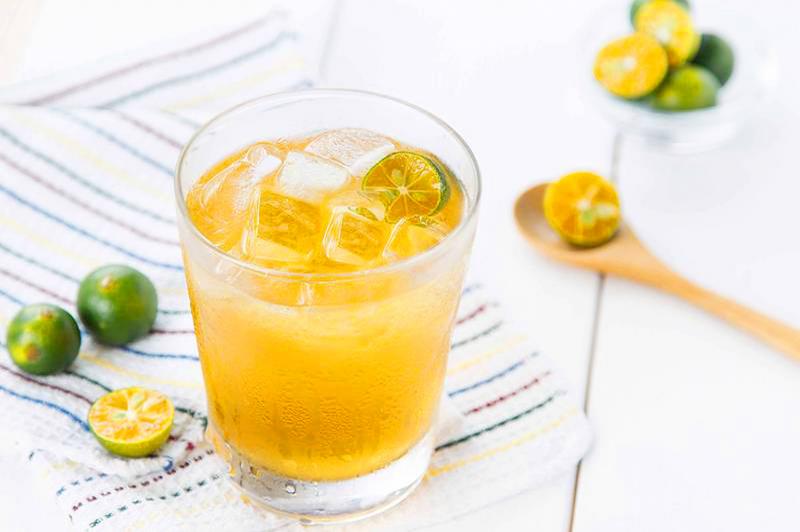
Photo: Liberty Times 照片:自由時報
Su adds that in vitro experimental studies have demonstrated that acetic acid and other organic acids contained in vinegar can inhibit the effect of platelet coagulation, but no relevant human clinical trial exists to date, so it is impossible to infer the actual effect inside the human body. If you consume an excess of acetic acid, you may damage your stomach. Aim for a balanced diet and avoid overconsumption of a single foodstuff, says Su.
(Liberty Times, translated by Edward Jones)
阿斯特捷利康(AZ)疫苗爭議不斷,更有案例施打AZ疫苗後出現血栓等症狀令民眾相當恐慌。近日網路瘋傳「喝醋」即可預防AZ疫苗引發的血栓疑慮。對此,事實查核中心採訪數名醫師後駁斥,指出目前沒有任何藥物、食材能預防施打疫苗後可能造成的血栓。
根據查核中心十五日發布的事實查核報告指出,社群平台和通訊軟體近期流傳一則訊息,內容宣稱,因未來施打AZ疫苗恐怕有血栓疑慮,現在可以開始多喝水果醋、蒜頭醋等,疏活血管收縮,防止血栓。
針對網路傳言,國泰醫院心血管中心一般心臟科主治醫師蘇彥伯表示,血液黏滯性增加、久坐不動、血管內皮受傷等,都有可能導致血液無法順利回流形成血栓。不過民眾擔心「施打AZ疫苗」造成的血栓,與一般引起血栓的原理並不相同,主要是因疫苗造成人體的特殊免疫反應,導致血小板低下、形成血液凝塊,造成小血管栓塞所致。
蘇彥伯說明,過去有體外實驗研究指出,醋所含的醋酸等有機酸,能抑制血小板凝結的效果,但沒有相關人體臨床試驗,因此無法推論人體的實際狀況。蘇彥伯也提醒民眾,若攝取過多醋酸,可能會傷及腸胃,應均衡飲食,勿過度攝取單一飲食。
(自由時報)
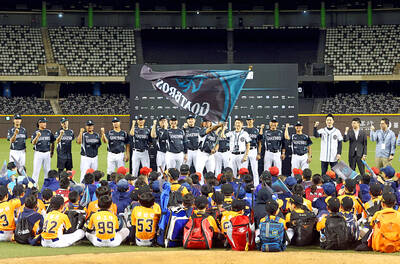
A: The 2025 World Masters Games will begin on May 17 and run until May 30. B: World Masters Games? A: It’s a quadrennial multi-sport event for people over 30, which will be jointly held by Taipei and New Taipei City. B: Cool, maybe we can go cheer for all the athletes from home and abroad. A: There will be an athletes’ parade in downtown Taipei prior to the opening ceremony on Saturday. Let’s go then. A: 2025雙北世界壯年運動會5月17日開幕,持續至5月30日閉幕。 B: 世壯運? A: 這是四年一度、以30歲以上青壯年為主的運動會,本屆是由台北市和新北市共同舉辦。 B: 好酷喔,我們去幫來自國內外的選手們加油吧! A: 週六在台北市區會有選手遊行,之後是開幕典禮,我們去看吧。 (By Eddy Chang, Taipei Times/台北時報張迪)
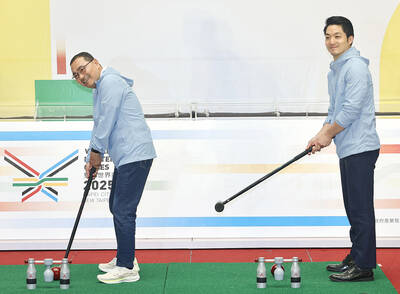
A: Where will the 35 sports of the 2025 World Masters Games be held? B: Apart from Taipei and New Taipei City, some games will take place in Yilan County, Taoyuan County, and Hsinchu County and City. A: The news says about 25,000 people, including many celebrities and sports stars, have already registered for the games. B: Even Taipei Mayor Chiang Wan-an, who is 47, registered for softball and squash. New Taipei Mayor Hou You-yi, who is 68, also registered for table tennis. A: And it will be the largest sports event ever in Taiwan’s history. How exciting. A:
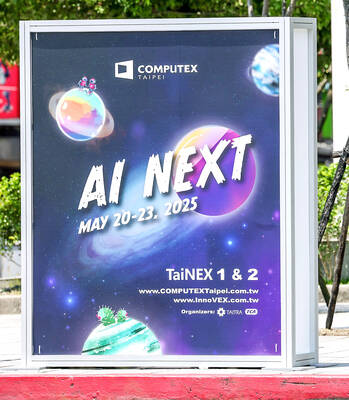
Computex, Asia’s biggest electronics conference, kicked off Monday in Taipei, and as in years past drew industry chieftains from Nvidia Corp.’s Jensen Huang and Qualcomm Inc.’s Cristiano Amon to Young Liu of Foxconn, which makes the bulk of the world’s iPhones and Nvidia servers. But while last year’s event was a celebration of the post-ChatGPT AI boom, executives this time are likely grappling with the uncertainty of the Trump administration’s effort to reshape the global trade order — disrupting a decades-old model for tech manufacturing. This year’s exhibition will of course feature the hardware required to bring artificial intelligence to life.
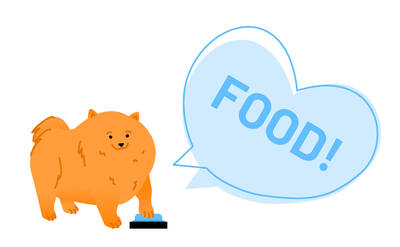
Dog owners often wish they could understand their pets’ thoughts. “Dog buttons” might turn their dream into a reality. These specially designed buttons, __1__ sound chips, enable dogs to communicate their needs by pressing buttons corresponding to pre-recorded words like “walk,” “play,” “outside,” and “food.” This bridges the communication __2__ between humans and their canine companions. The science behind dog buttons is based on the concept of associative learning. It’s a process __3__ learners can link actions with outcomes. For instance, if an owner consistently presses the “walk” button and then takes their dog for a walk, the dog